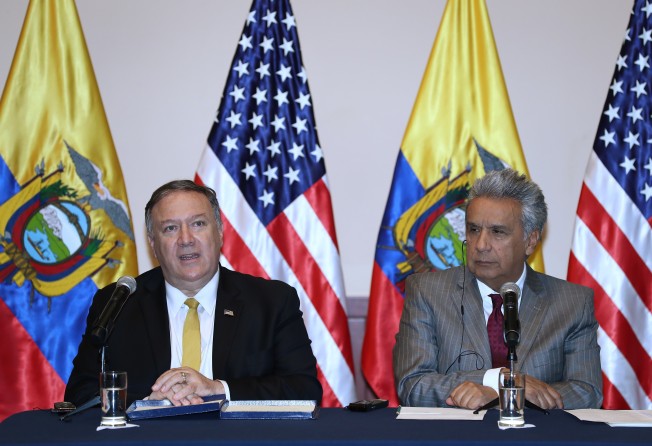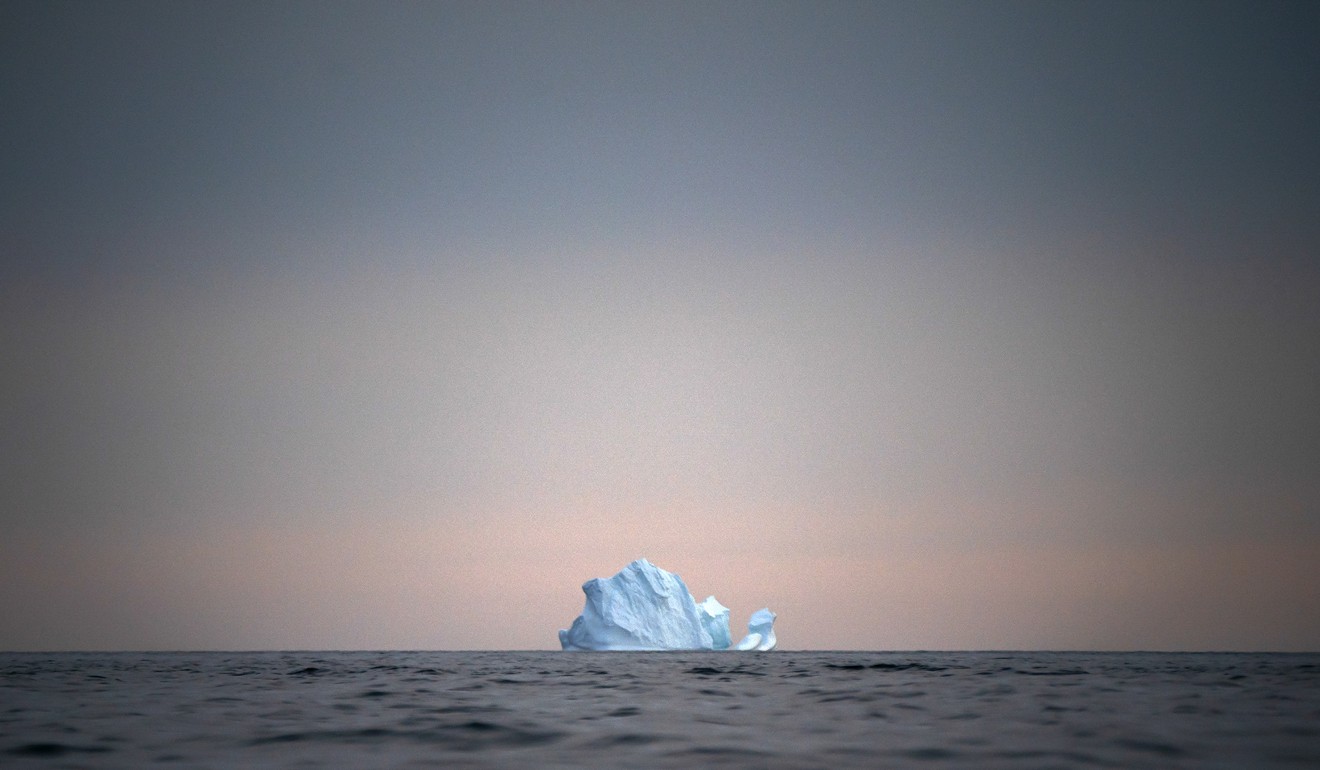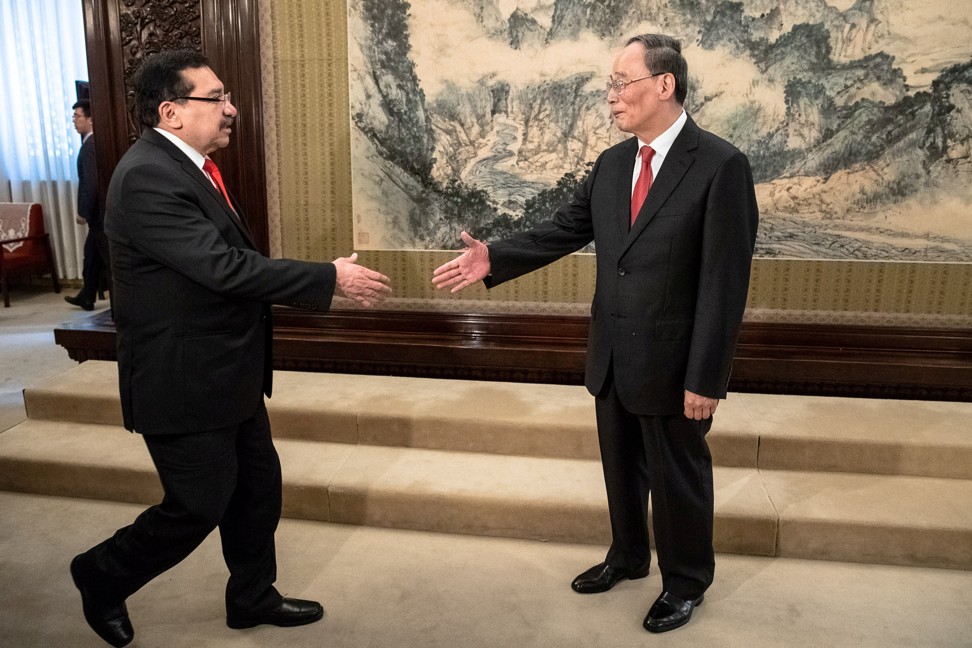
Behind the trade war and Trump’s offer to buy Greenland lies growing US discomfort with China’s overseas expansion
- China has made no secret of its interest in Arctic resources and has expanded its influence into US spheres of influence
- The US president’s anger at Denmark over Greenland wasn’t the first sign that such ambitions trouble Washington

Recent developments have merely served to underline why the US-China trade war commands such attention. This is a trade war with global ramifications, but it is also just the tip of the iceberg in a global tussle for economic and political influence between China and the United States. It shouldn’t be viewed in isolation.
Last week’s decision by US President Donald Trump to put off a trip to Denmark is a case in point. On the surface, Trump’s decision, after Copenhagen had declined to discuss a US proposal to purchase Greenland, has nothing to do with China. But, at least in part, it was a desire to secure Greenland’s natural resources that drove the US offer, resources in which Beijing also has an active interest.
As Washington will be fully aware, China has been forging a closer economic relationship with Greenland.
Efforts by state-owned China Communications Construction Company to secure the contract to build two new airports in Greenland may have foundered but China has been developing its mining interests there, notably in Greenland’s Kvanefjeld uranium and rare earth extraction project.

In truth, the Trump administration should probably have expected to be rebuffed by Copenhagen. After all, a previous offer from the United States to purchase Greenland, an autonomous region of the Kingdom of Denmark, in 1946, had also been declined by the Danes.
Then, as now, it was Greenland’s strategic position in the Arctic and North Atlantic Oceans and its wealth of resources that lay behind Washington’s offer.
Then, however, the United States’ major geopolitical, although not economic, rival was the Soviet Union. Today, its chief economic and geopolitical rival is China. And, as Washington is acutely aware, China has both a big appetite for natural resources and an active desire to develop its trade links, including through the seaways of the Arctic Ocean, which are now more accessible due to climate change.
Perhaps Trump’s offer to buy Greenland, and his subsequent disquiet at being turned down, is as much an indication of how unsettling the US now finds China’s economic expansion, and the deepening of Beijing’s geopolitical footprint, as it is of anything else.

Similar US unease is evident elsewhere. Washington has substantial concerns about Beijing’s growing influence in Latin America and the Caribbean (LAC), areas which the US has long considered to be its backyard.
For example, China’s efforts to expand diplomatic ties in that region, at the expense of Taiwan, have not gone unnoticed in the US.
El Salvador’s decision to switch diplomatic recognition to China from Taiwan, in August 2018, elicited a strong response from the White House. “The El Salvadoran government’s receptiveness to China’s apparent interference in the domestic politics of a Western Hemisphere country is of grave concern to the United States, and will result in a re-evaluation of our relationship with El Salvador,” Washington said.
A staff research paper from the US-China Economic and Security Review Commission, published in October 2018, is equally revealing.
“[T]he rapid growth of LAC imports from China is decreasing US market share in the region and increasing the region’s economic dependence on China,” the paper states.
Focusing on the fact that, since 2005, “Chinese state policy banks have provided over [US]$150 billion in loans to the [LAC] region,” the report states that this financing “has weakened the ability of the United States and multilateral [organisations] to influence LAC governments’ behaviour”.
The report also stresses how, since 2015, China “has coordinated its regional engagement through the China-Community of Latin American and Caribbean States (CELAC) Forum”. As the US and Canada are not members of this regional body, “through the China-CELAC Forum, China is able to push forward its foreign policy objectives and shape regional discussions without US or Canadian involvement”.
The paper concludes that China’s emergence in Latin America and the Caribbean “is eroding US economic dominance in the region” and that “the size and continued expansion of China’s market creates enormous growth potential for LAC exporters (particularly in agriculture) that the US market cannot match”.
It’s clear that Washington is increasingly perturbed about the extension of Chinese influence in the area. It may not yet feel threatened by China’s expansion into geographical localities which it has historically dominated, but Washington’s unease is palpable.
The bottom line is that China and the US find themselves engaged in a global tussle for influence. That’s why the trade war should be viewed as just one front in a much bigger struggle.
Neal Kimberley is a commentator on macroeconomics and financial markets
